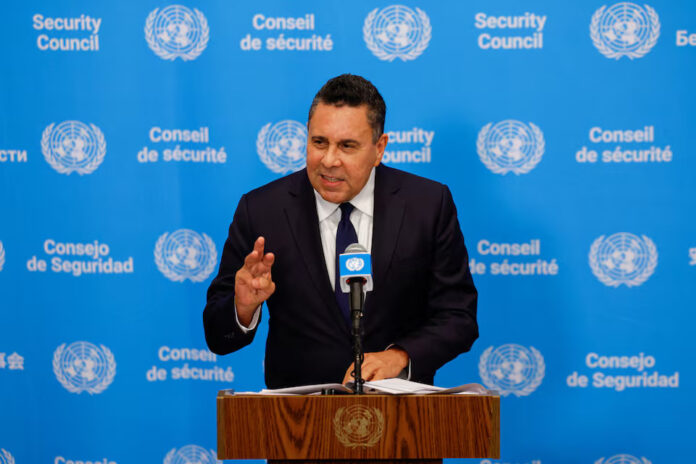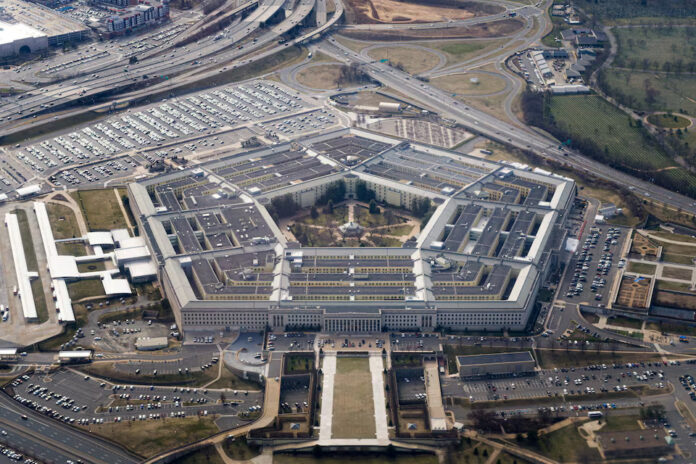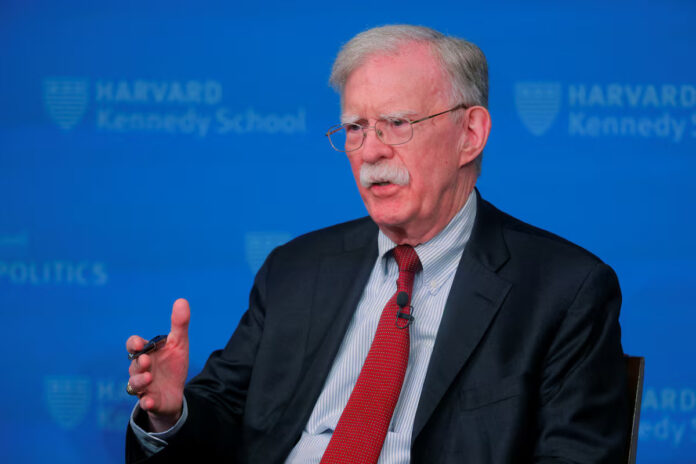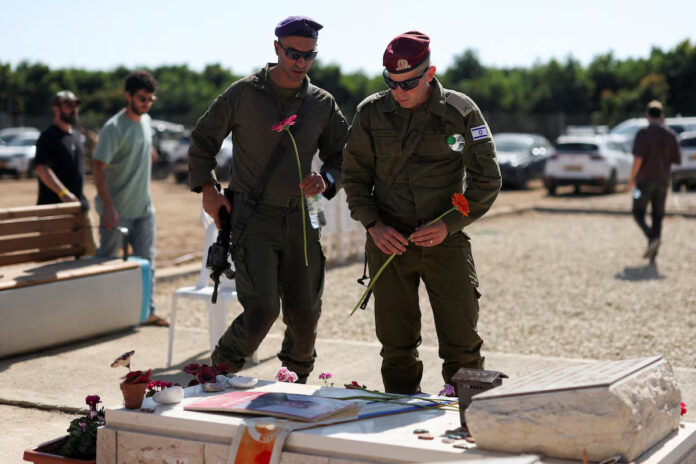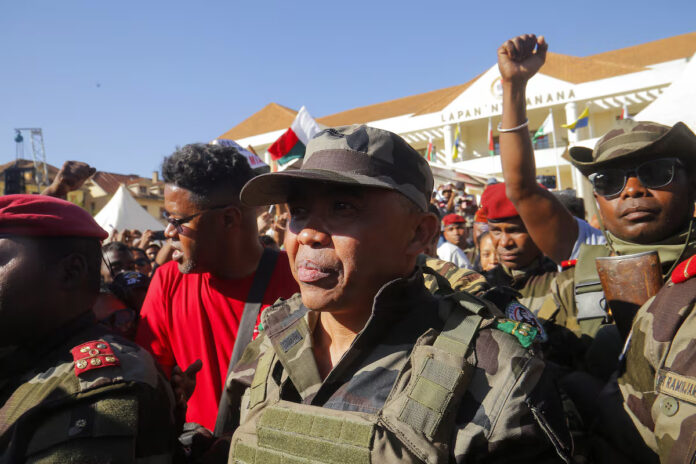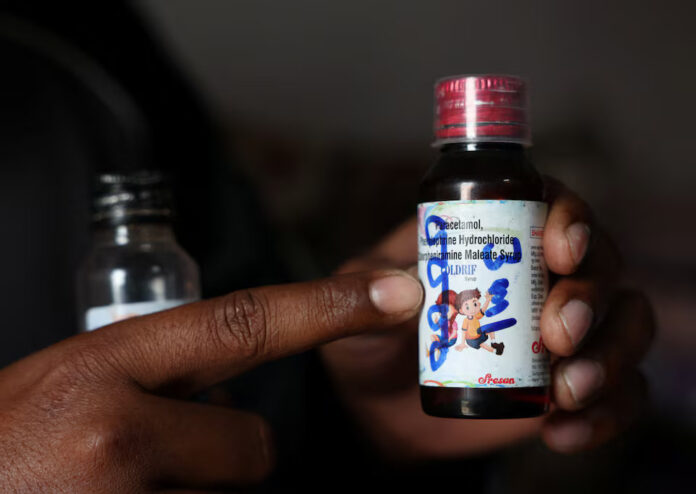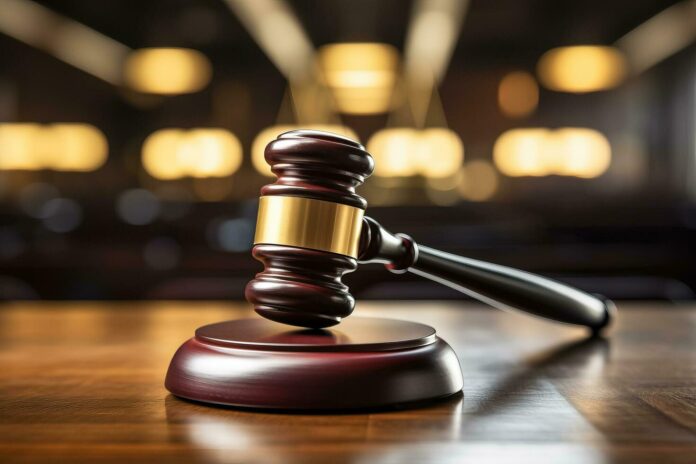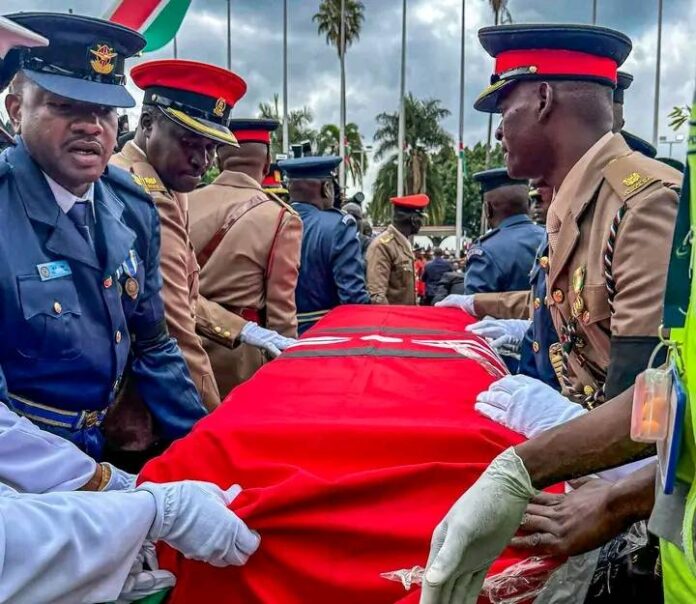Venezuela has formally requested the United Nations Security Council to declare recent U.S. military strikes on vessels off its coast illegal and to issue a statement affirming Venezuela’s sovereignty, according to a letter seen by Reuters on Thursday.
The appeal, made by Venezuela’s U.N. ambassador Samuel Moncada in a letter dated Wednesday, accused the United States of killing at least 27 people in what he described as attacks on “civilian vessels transiting international waters.”
He urged the council to launch an investigation to “determine their illegal nature” and reaffirm the principles of sovereignty and territorial integrity under international law.
The strikes are part of a broader U.S. military buildup in the southern Caribbean, ordered by President Donald Trump, who has deployed guided missile destroyers, fighter jets, and thousands of troops to the region.
Washington claims the operations target drug-trafficking networks allegedly linked to Venezuela, though it has not publicly presented supporting evidence.
In a televised address from Caracas, Venezuelan President Nicolas Maduro accused the Trump administration of authorizing the Central Intelligence Agency to conduct operations aimed at destabilizing his government.
“The CIA has always been behind coups around the world, but never before has a government openly admitted it ordered the CIA to kill, overthrow, and destroy countries,” Maduro said.
He vowed that Venezuela’s people were “clear, united, and ready to defeat this open conspiracy against peace and stability.”
Diplomats said the Security Council is unlikely to take any binding action because the United States holds veto power. The 15-member body met last week to discuss the growing tensions at the joint request of Venezuela, Russia, and China.
During that meeting, Washington defended the strikes as legitimate acts of self-defense under Article 51 of the U.N. Charter, which allows member states to respond to armed attacks.
On Thursday, U.S. Ambassador to the U.N. Mike Waltz reiterated that stance, saying President Trump would continue to use “the intelligence community, the Defense Department, and diplomacy to defend U.S. sovereignty against actions that are actively killing Americans.”
“Venezuela can bring whatever they want to the U.N.,” Waltz said in an interview with Fox News. “What’s also part of the U.N. is Article 51, the right to self-defense. That’s what President Trump is doing and will keep doing.”
The escalating diplomatic confrontation underscores growing tensions between Washington and Caracas, as U.S. military operations intensify in the Caribbean and Venezuela seeks international backing against what it calls an “illegal act of aggression.”
Source: Reuters
Written By Rodney Mbua









